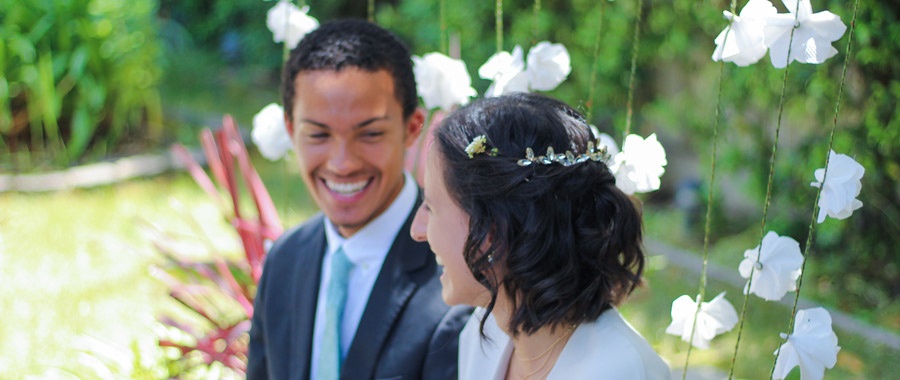As the world faces unprecedented challenges amidst a global pandemic, the pursuit of love and unity continues to thrive, revealing profound implications for those seeking to marry. The Bahá’í teachings provide invaluable insights into navigating such tumultuous times with grace and purpose. In reflecting upon the theme of “Getting Married During a Pandemic: Our Path to Unity,” we explore the profound teachings of the Bahá’í Faith and how they illuminate a pathway towards enduring relationships in the face of adversity.
At its core, the Bahá’í Faith espouses the principle that marriage is not merely a contractual agreement; rather, it is a sacred union ordained by God, meant to foster the growth of individuals and contribute to the betterment of society. This intricate understanding encourages couples to view their partnership as a spiritual journey, wherein mutual respect, love, and dedication serve as foundational pillars. In times of crisis, the teachings urge couples to utilize challenges as opportunities for personal and collective growth.
First and foremost, couples should embrace a holistic perspective on the nature of unity. The pandemic has illuminated that unity does not imply uniformity; rather, it thrives in diversity. In a world where societal norms are continually evolving, it becomes essential to understand and appreciate the unique backgrounds and experiences each partner brings into the relationship. Recognizing and celebrating these differences can deepen the bond between partners, fostering a rich tapestry of shared values, while also laying the groundwork for resilience amid change.
A commitment to unity also encompasses the practice of open communication. The Bahá’í teachings emphasize the importance of consultation— a process that encourages frank discourse and collective decision-making. During a pandemic, when external pressures and uncertainties abound, engaging in heartfelt communication becomes even more imperative. Couples should actively cultivate an atmosphere where thoughts and feelings are shared openly, without the fear of judgement. This openness creates a safe space for vulnerability, where partners can address challenges and aspirations alike, thus fortifying their relationship as they navigate uncertain waters together.
Equally crucial is the understanding of the spiritual dimension of marriage. The Bahá’í Faith posits that true love is intimately linked with spiritual growth. Couples embarking on the journey of marriage during a pandemic are invited to reflect on their individual and shared spiritual practices. Engaging in prayer and meditation together can serve as a powerful anchor, allowing partners to connect not only with one another but also with the divine purpose of their union. This shared spiritual foundation instills a sense of peace and serenity, which can mitigate anxieties associated with the external circumstances.
Moreover, the pandemic offers a unique opportunity for couples to recalibrate their priorities and redefine what they deem essential in their relationship. As the world temporarily shifted towards lockdowns and social distancing, many found joy in simple yet profound moments: savoring cooking together, exploring nature, or engaging in creative projects. The Bahá’í teachings emphasize simplicity and moderation, urging couples to cultivate gratitude for life’s everyday blessings. This shift in perspective encourages partners to infuse their relationship with intentionality and mindfulness, thereby enhancing their emotional connection and solidarity.
Additionally, practical considerations must be addressed in the planning of a wedding during such uncertain times. With restrictions on gatherings and heightened health protocols, couples are encouraged to embrace flexibility and creativity in reimagining their wedding celebrations. This could involve intimate ceremonies with close family, virtual celebrations, or even postponing larger gatherings to prioritize health and safety. The Bahá’í principle of moderation can guide couples in finding harmony between their desires and the realities of their circumstances, ensuring that they honor their union while remaining sensitive to the collective needs of their community.
In examining the essence of commitment, the Bahá’í teachings emphasize the significance of fidelity and loyalty. The pandemic serves as a poignant reminder of the fragility of life and the unpredictability of circumstances. Couples are called to reaffirm their vows with sincerity, recognizing that true commitment extends far beyond the wedding day. Engaging in acts of kindness, support, and encouragement can nurture the relationship’s bond, affirming that the partnership is a lifelong promise rooted in love, respect, and shared aspirations.
Furthermore, as couples journey through this transformative phase, they must remain cognizant of the impact of their union on the broader community. The Bahá’í teachings urge individuals to consider the welfare of humanity in their actions. A marriage exemplifying unity, resilience, and compassion can ripple through society, inspiring others to forge meaningful connections in times of crisis. By embodying these principles, couples contribute to the collective healing needed in the wake of the pandemic, fostering a legacy of love that transcends individual experiences.
Finally, it is essential to remember that getting married during a pandemic is both a personal and collective endeavor. The Bahá’í teachings illuminate the interconnectedness of all souls—a vital reminder that the journey towards unity is not solitary. Couples must seek opportunities to engage with family and friends, even in a distanced manner, creating an inclusive support network that strengthens their bond. By nurturing relationships with their wider community, couples infuse their marriage with a sense of shared purpose, thereby enriching their lives and those of others.
In conclusion, the teachings of the Bahá’í Faith offer profound guidance for couples navigating the complexities of getting married during a pandemic. Through the lens of unity, communication, spiritual growth, and community engagement, partners can cultivate a resilient and enduring bond. As they embark on this sacred journey, they transform not only their lives but also contribute to the collective well-being of humanity—a testament to the power of love even in times of turmoil. Ultimately, the path to unity embodies a promise; one that thrives even amidst the most challenging circumstances, and invites couples to envision a future illuminated by shared aspirations and unwavering commitment.
